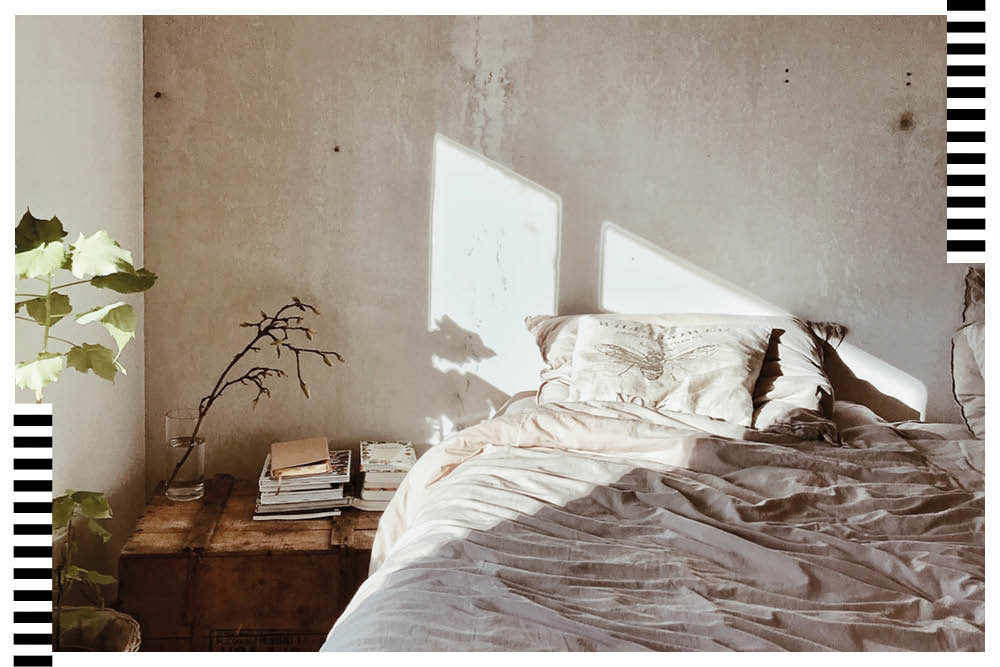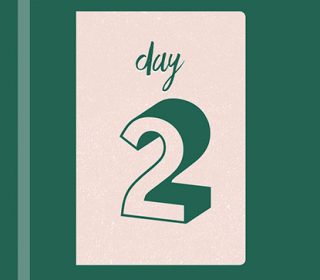The benefits of sleeping with a weighted blanket

There has been much discussion and advertisement of the weighted blanket, shown to increase the level of serotonin (the happy hormone) and melatonin (the sleep hormone) and reduce cortisol (the stress hormone). Research indicates they have the ability to provide users with a ‘hug’ sensation – reducing stress and anxiety, improving sleep and mood and helping with insomnia, along with further mental health conditions. So, I wanted to see what all the fuss was about.
You may see the phrase ‘deep touch pressure’ in the product description of weighted blankets. Looking back, this relates to a study by Temple Grandin, Ph.D. where he describes it as ‘the type of surface pressure that is exerted in most types of firm touching, holding, stroking, petting of animals, or swaddling.’ A light touch can alert the nervous system, whereas deep pressure does the opposite.
As stated, Grandin wanted to be held as a child but pulled away when people tried to do so. At 18-years-old he built the ‘squeeze machine’ to help his anxiety and panic attacks. The pressure levels were controllable by the user and helped him personally as well as some children with autism and attention deficit hyperactivity disorder.
A pioneer of weighted blankets, founded in 2013, is Gravity Blankets. This blanket, which should be bought at a weight that is 10% of the user’s weight, costs £149 – an arguably high price but they do offer instalment payments and a 28 nights sleepful guarantee, which means you can get your money back if your mood and quality of sleep hasn’t improved. Personally, I went for a cheaper alternative from wayfair – and I can still say that I’m impressed.
It can take me hours to fall asleep and I’ll often wake up in the night. So, even when exhausted, the thought of going to bed can be a stressful one. In the week that I’ve tested the weighted blanket, it has made me feel more calm and secure when first turning the lights out. I can only describe the weight as providing stability, and therefore comfort. I’ve also had a better quality sleep with far less disruption, which has made me happier in the morning and more able to handle the day.
It seems I’m not alone. Emma Habanananda, 23, says: “I decided to try a weighted blanket to see if it would relieve the physical symptoms of my anxiety. I’ve found it helps to bring my heart rate down and reduce the feeling of panic.
“I use it when I start to feel the symptoms of a panic attack coming on or to enhance my other self-care activities. I would definitely recommend it to anyone suffering from anxiety. I have no complaints other than I might get a heavier one.”
Evidently the weighted blanket is multipurpose and doesn’t have to be used only for sleep.
Morag Bailey, 77, says: “It has transformed my sleep. I now sleep through the night and wake up feeling more peaceful.”
The weighted blanket is sometimes ‘prescribed’ by occupational therapists for some of the conditions mentioned earlier.
Royal College of Occupational Therapists Professional Advisor, Dr Sally Payne, says: “Weighted blankets are used by people of all ages with a variety of health needs. Whilst the evidence for their effectiveness is limited, people say the blankets make them feel more relaxed and calmer, helping to improve their quality of sleep.
“Good quality sleep is certainly important for mental and physical health and occupational therapists might suggest using a weighted blanket as part of a sleep hygiene programme. Weighted blankets should be the correct weight for the user and should only be used by people who are able to remove them to avoid the risk of suffocation.”
Research is out there in favour of the weighted blanket and its positive effects on mental and physical health. But, the downfall is that evidence is relatively sparse and, at times, contradictory. Aside from a few heat issues from thicker blankets, perhaps we should let the glowing reviews online speak for themselves. I’ll be sticking with mine every night.











